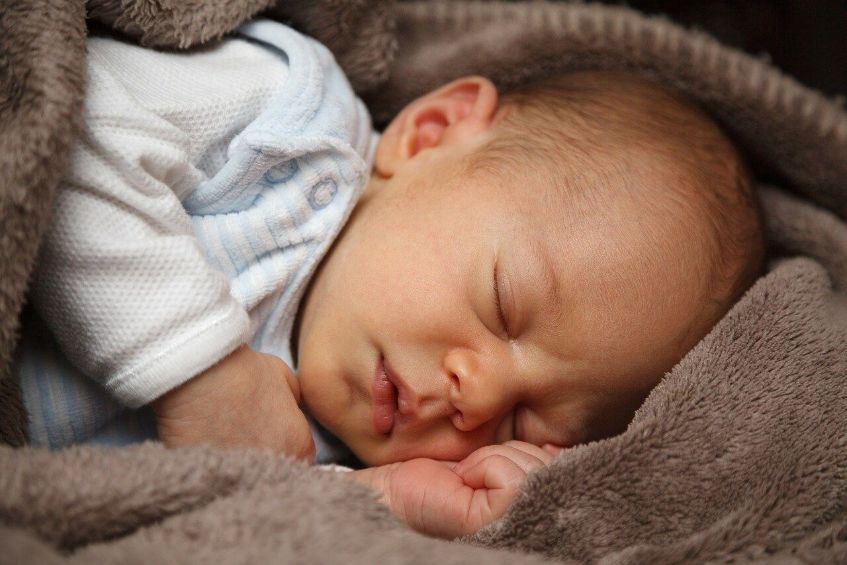
What Is Sleep Regression? Why Does It Happen?
WHAT IS SLEEP REGRESSION?
Another joyous phrase that you’d rather remain in ignorant bliss about, but you know it exists and aware that it will happen. It’s basically the term used to describe periods of time when your angelic sleepy head begins to wake up in the night when ordinarily they ‘sleep like a baby’. Or when your toddler suddenly starts to fight nap time and doesn’t want to be put into bed for the night.
Like adults, any change in our daily routine or physical or emotional health, the first thing that becomes disrupted is our ability to sleep soundly through the night. It’s no surprise that this will occur in babies too, the main difference being; they can’t verbalise why or what is bothering them.
As parents, it becomes a matter of offering support and patience whilst the disruption plays out (usually between 3 and 6 weeks) until peaceful nights resume. It feels like it will never pass while you’re in it; but it will.
KEY REASONS WHY SLEEP REGRESSION HAPPENS
Some key reasons why your baby can experience sleep regression are as follows:
- Teething
- Weaning
- Developmental milestones
- Beginning to feel unwell or getting over a bug or virus
- Separation anxiety as they become more aware of you and their surroundings
- The onset of night terrors or bad dreams
- Changes in their diet
- Changes in their environment or routine
Unfortunately, it is something that all developing children will experience to some degree and can’t be bypassed. Rest assured it often passes as quickly as it arises. Each baby is unique, what one baby experiences may not occur for another.
4 MONTHS OLD – THE HUMDINGER
At 4 months old, your baby changes. They leave the baby like sleep cycle of being able to sleep for long periods of time without waking – essentially sleeping like a log, up until this point most of their growth and physical development takes place whilst they are asleep.
At 4 months a baby’s sleep cycle now fluctuates in between light and deep sleep with more frequency. This is a moment of celebration! As it is a very healthy developmental milestone, on the other hand it presents itself as more night waking and power naps.
When this change occurs, it may lead to 2-3 weeks of sleep regression. It could start as early as 3 months or later at 5 months.
It is a momentous change in your baby’s development; they will not revert to extended long periods of deep sleep again. They have entered the adult sleeping style. When they come into the light sleep, they may wake up and need your help to get back into the deep sleep cycle as it’s a whole new experience. That’s the cause of the disrupted sleep – finding themselves awake!
SLEEP REGRESSION – TEETHING
Sleep regression may also coincide from this age and continue until the teeth have cut through the gums. Sleep regression due to teething is something else that is inevitable and requires some compassion and comfort.
Pacifiers, teething gel and cooled teething rings can help ease the pain and help them drift back to sleep.
6 MONTHS OLD – SLEEP REGRESSION OR JUST HUNGRY
At this age you baby may have learnt some new tricks; rolling, crawling, or scooting, some may be learning to sit up without your help. This movement burns their calories like a marathon would, leading to an increased appetite, resulting in larger feeds and the introduction of solids.
If your baby is waking up and happily settles after a top up, it is less likely to be sleep regression. This can carry on until your baby’s tummy grows allowing them to consume more during the day and take more during the last feed of the night.
8 to 10 MONTHS OLD – DEVELOPMENTAL CHANGES
During this period your baby, is no longer a little grub. They are well on the way to exploring their environment through all their senses, they will be going through rapid growth and brain development. Some babies may be standing up in their cots and resist laying down.
They will be learning to mimic language and end the day with a whole menu of new information to process. Their little brains will take time to ease down and relax into sleep mode. Separation anxiety may start to emerge at this age, a little more time spent on a bedtime routine, cuddles and reassurance goes a long way to help.
11 to 12 MONTHS – DON’T BE FOOLED
Your baby may now be dropping their daytime naps, to one or two short ones. Try to persevere and encourage a 2nd nap as they are not quite ready to have that amount reduced. Babies can still require two naps until they are 15-18 months old to maintain healthy development and over tiredness. There tends to be less of a chance of sleep regression during this age.
15 to 18 MONTHS – NAP SCHEDULE
It can be a tricky one to call, as you may now have a toddler, who will be able to get up, throw covers off and vocalise. This stage of toddler sleep regression can be due to their daytime schedule not matching their needs, too much sleep in the day will reduce their night time sleep and too little sleep in the day will lead to over tiredness.
18 to 24 MONTHS – FREE WILL
By this age, your almost 2 year-olds has gone through and will continue to go through huge life transitions; potty training, a bed rather than a cot, the possibility of playgroup, a new sibling…the list goes on.
A 2 year old can also experience nightmares (extreme cases are called night terrors), with all the new information and changes going on in their environment. It’s not a surprise that this can be the cause of a long drawn out sleep regression cycle.
Your toddler can also have the power of ‘NO’ at their disposal and simply refuse to go to sleep. That is something that parents will tackle and learn how to manage as your little person develops.
Routine is key to help your toddler know what to expect during the day and leading up to night time, it also helps parents to manage their own schedules and sleep.
.
Read more on How you can deal with sleep regression
If you need an app that can help your baby get to sleep faster, checkout Moshi’s blog on Sleep Regression. White noise can soothe and relax your child into sleep.
